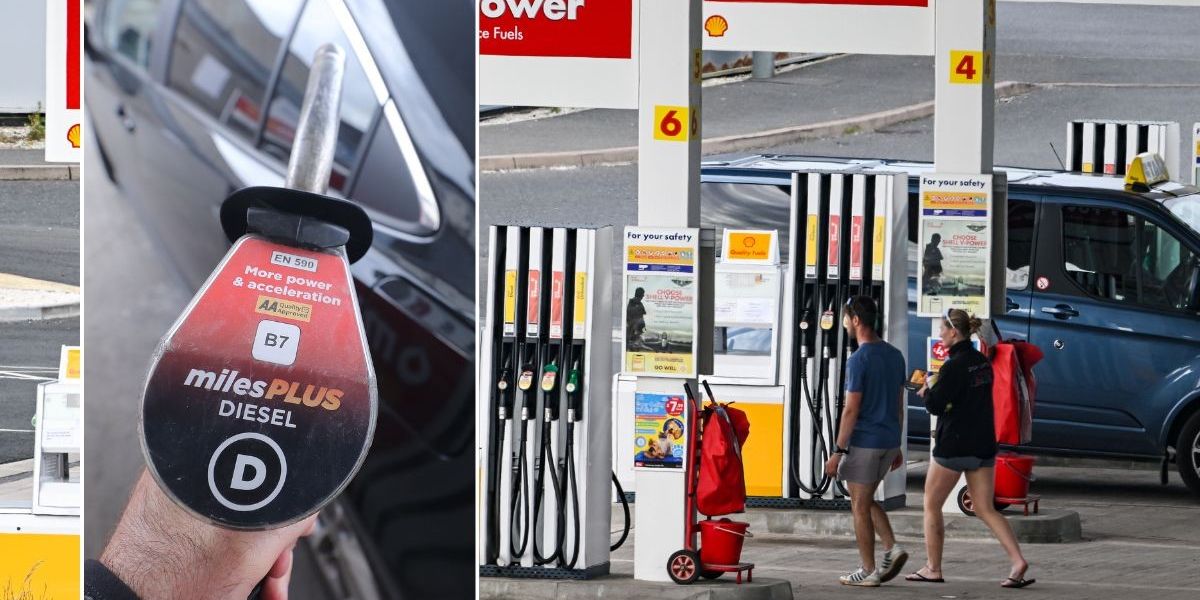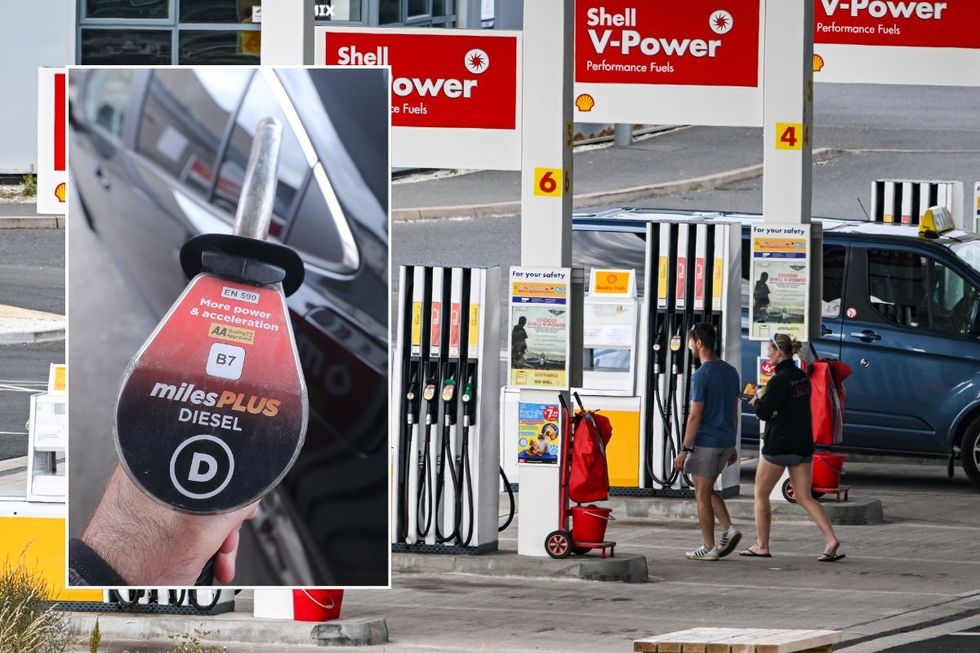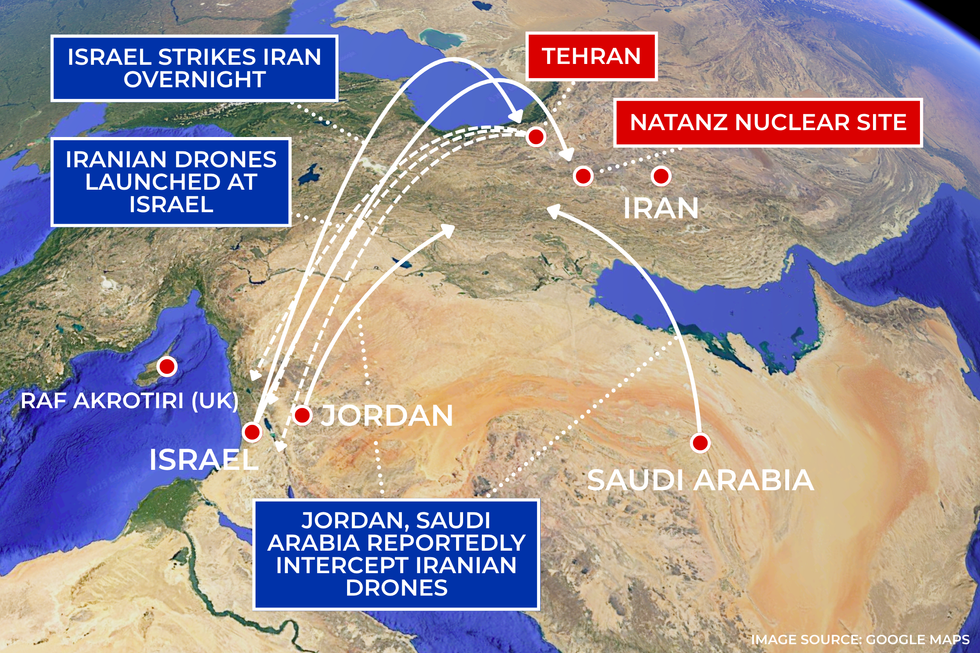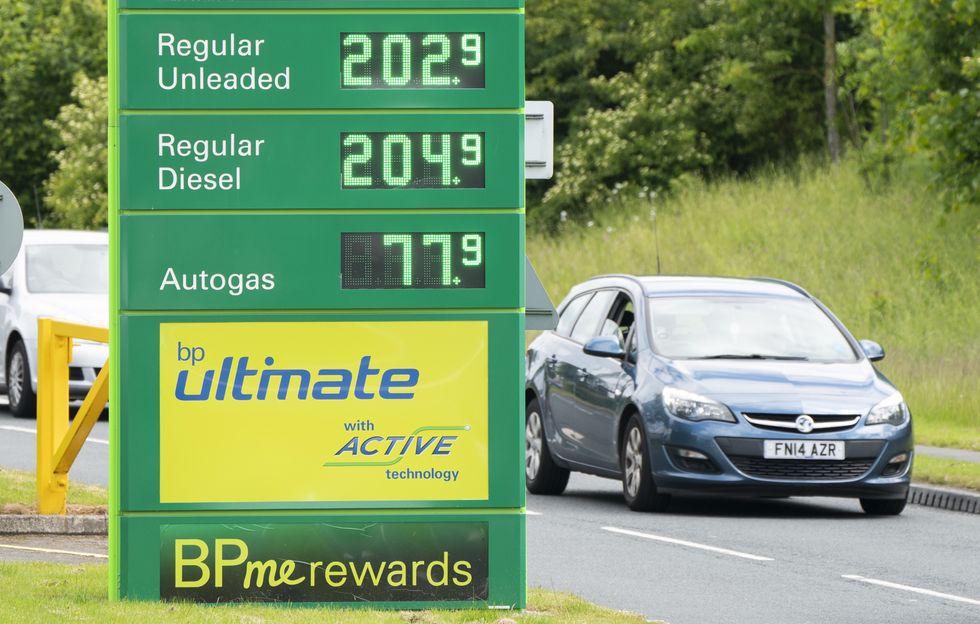



Petrol and diesel car owners are starting to feel the pressure at the pumps again as tensions in the Middle East bring an end to falling fuel prices.
The latest data from RAC Fuel Watch reveals that motorists are paying an average of 134.7p, which is a rise of two pence per litre since the start of June.
An average family filling a standard 55-litre car will now fork out £73.79 for a full tank, which is £1.07 more expensive than it was in the previous month.
Diesel drivers are feeling the pinch even more, with prices rising almost three pence per litre, with the average cost of a litre now standing at 141.21p.

Motorists have seen petrol and diesel prices rise in recent weeks following global instability
GETTY
The primary cause of these price rises is the instability in the Middle East between Israel and Iran, forcing the cost of a barrel of oil to rise.
In late May, Brent crude oil was selling for around $64 (£46.64) per barrel, but spiked to a high of $79 (£57.57) on June 19 following US strikes on Iranian nuclear facilities.
Following the bombing raid, Iran voted to block access to the Strait of Hormuz, despite it being one of the main arteries for the transportation of oil.
Experts warned that a lack of oil would force fuel prices higher, given a shortage in supply, with retailers passing the additional costs on to drivers at the pumps.

MAPPED: The state of play following Israel and Iran's strikes
GB NEWSDespite initial fears from industry experts that prices would spiral, oil prices have since fallen and ended June at $67 (£48.82).
The RAC said it hoped fuel prices would continue to fall in the coming days and weeks, with prices set to stabilise, much to the relief of drivers.
However, this will depend on supermarkets and other major retailers and whether they will retain high margins - something which the Competition and Markets Authority (CMA) noted in its latest fuel price report.
Simon Williams, fuel spokesperson at the RAC, said: "The arrival of summer has brought some wholly unwelcome increases to pump prices, with retailers wasting no time in putting them up following increased tensions in the Middle East.
"Unleaded and diesel are now both at their highest levels since late April, although we see no reason for further increases as wholesale prices have come back down again."
He warned that July would be a "telling month" as retailers decide how to react to the fluctuating price of oil.
Drivers could benefit from a drop in price if wholesale costs continue to fall, or they could end up paying more, potentially for the "foreseeable future", as noted by Williams.
Supermarkets continue to offer fuel at a lower cost than most other retailers, with average prices of 130.26p for unleaded and 136.67p for diesel.
 Petrol and diesel prices peaked across the UK in the aftermath of the Russian invasion of Ukraine PA
Petrol and diesel prices peaked across the UK in the aftermath of the Russian invasion of Ukraine PA
While global tensions played a role in affecting fuel prices, motorists in Northern Ireland remained relatively unscathed, with unleaded costing 6p less than the rest of the UK and diesel at 134p.
Northern Ireland's Consumer Council Fuel Price Checker helps motorists track the cheapest fuel across the country, helping to boost competition among retailers and force prices down.
Williams said: "Thankfully, we're a long way off the record pump prices of exactly three years ago – when the Russia/Ukraine conflict saw the average price of unleaded hit an unprecedented 191.53p a litre and diesel climb to 199.21p, with some retailers charging well in excess of £2 a litre.
"But given fuel represents a substantial chunk of most households’ monthly outgoings, it remains the case that drivers need to be guaranteed a fair deal every time they fill up."
